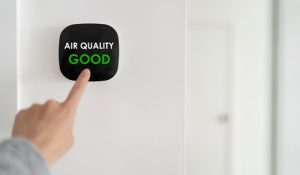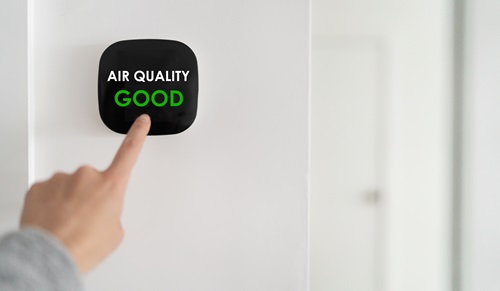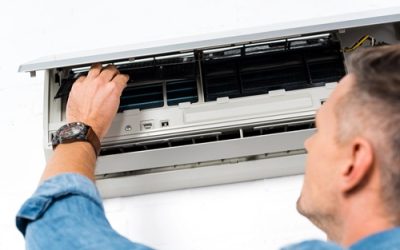 If you or someone you care about suffers from asthma or allergies, it’s essential to maintain your HVAC system properly to have excellent indoor air quality. Your home’s heating and cooling system can significantly impact respiratory health.
If you or someone you care about suffers from asthma or allergies, it’s essential to maintain your HVAC system properly to have excellent indoor air quality. Your home’s heating and cooling system can significantly impact respiratory health.
Dirty HVAC ducts and subpar air filters can allow airborne particles to circulate in your living space, worsening asthma and allergy symptoms. Here are eight ways to reduce allergens and irritants in your indoor air, leading to fewer and milder episodes for those affected.
Tips For Improving Your Indoor Air Quality
Upgrade Your HVAC Air Filter
A clean HVAC air filter is crucial for maintaining indoor air quality (IAQ). However, standard filters that come with heating and cooling systems primarily protect the equipment, not your health. These filters may let common allergens pass through. To minimize allergy and asthma triggers, invest in a higher-rated air filter capable of capturing more particles.
Filters have Maximum Efficiency Reporting Value (MERV) ratings. Filters with a MERV rating of at least eight can trap dust mites and mold spores. For smoke, pet dander, or smog concerns, consider a MERV rating of 11 or higher. High-efficiency particulate air (HEPA) filters offer superior filtration, but installation may require modifications. Regardless of the type, check and replace filters every 30 to 90 days.
Clean Air Registers, Vents, and Grilles
Dirty air vents release contaminated air into your home. Clean these features with a damp cloth to remove accumulated debris. Remove vent covers to clean behind them using your vacuum’s hose and attachments. Regularly clean these components while changing your HVAC air filter.
Seal Leaks in Your Home
Allergens and contaminants can infiltrate your home through gaps and cracks in building materials. Caulk and weatherstripping help seal your home’s envelope, preventing outdoor pollutants from entering and reducing the workload of your HVAC air filter.
 Seal HVAC Air Ducts
Seal HVAC Air Ducts
Leaky or unsealed HVAC air ducts allow unfiltered air to enter your system, affecting IAQ. Professional duct sealing can improve IAQ, reduce energy consumption, and prolong HVAC equipment lifespan.
Professional HVAC Duct Cleaning
Have your HVAC air ducts inspected annually to address structural issues before they impact IAQ. Professional HVAC maintenance, typically every three to five years, can be more frequent if allergies or asthma are a concern.
Keep Up with HVAC Replacements
Proper HVAC maintenance helps, but over time, the equipment loses efficiency. Replace air conditioners and furnaces every 15 to 20 years and ducts every 10 to 15 years. Aging equipment may negatively affect IAQ.
Install Humidification/Dehumidification Equipment
HVAC systems in Knoxville TN regulate temperature, humidity, and air quality. However, in homes with specific conditions, additional humidity control may be necessary. Dry air can worsen asthma and allergies, while excessive moisture promotes mold growth. Consider whole-house humidifiers or dehumidifiers.
Explore Integrated IAQ Accessories
Integrated IAQ accessories like media filters, air scrubbers, and air purifiers are essential for those with compromised immunity or chronic respiratory issues. These additions are installed in or connected to air ducts, effectively removing pathogens, allergens, and other contaminants that standard HVAC filters may miss. They extend equipment lifespans, decrease repair risks, and improve HVAC efficiency.
To protect vulnerable family members and maintain consistent indoor air quality in Knoxville TN, consider these integrated IAQ accessories. By reducing the risk of equipment failure, you’ll have reliable HVAC performance and fewer disruptions in temperature and humidity.
Call J.C.’s Heating and Air now. Our team will help make sure that you can enjoy the benefits of having excellent indoor air quality.
Like our Facebook page for more great info about heating and cooling services.
Areas Served: Corryton, Fountain City, Halls Crossroads, Farragut, Powell, Knoxville, Knox County, Oak Ridge, Lenoir City



